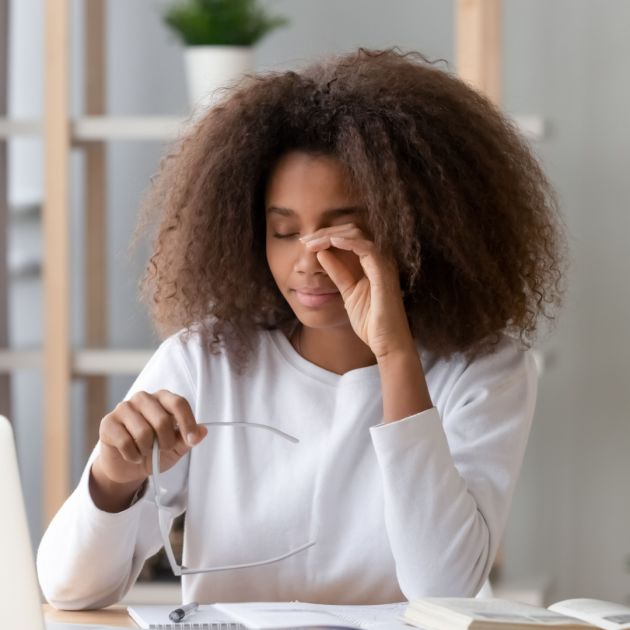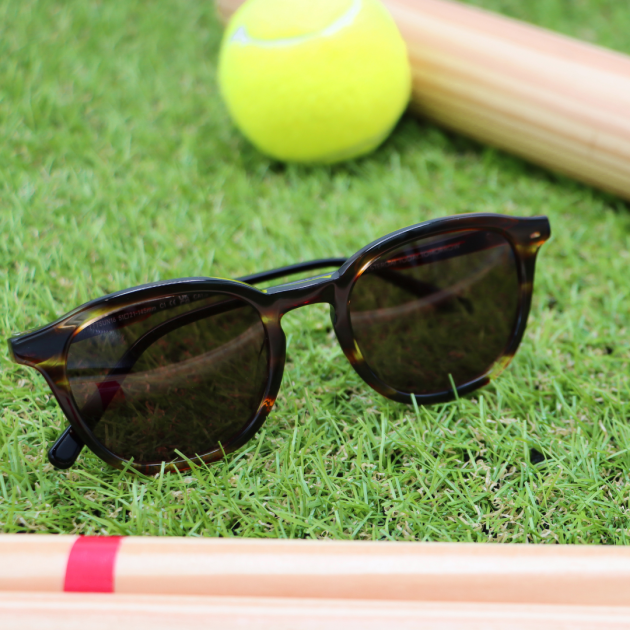Summer Eye Health Issues and How to Prevent Them
May 04, 2023 in Eye Care

Ah, summer! The sun is shining, the barbecues are out, and the ice cream is flowing, but why are our eyes itching?
This year, don’t let the joys of summer be overshadowed by dry or sore eyes. Join us as we take a look at some of the most common summer time eye health problems and how we can prevent them.
What eye health issues are common during summer?
With everyone spending a lot more time outside over the summer months, our eyes are more vulnerable to the elements, but what do we need to look out for?
Well, to make it easier, we have split these into two categories: symptomatic eye conditions and protecting our health and well-being.
Symptomatic eye conditions
As the name suggests, symptomatic eye conditions are medical conditions that affect our eyes and can cause symptoms such as irritation, pain or dryness. They can be caused by a range of factors, but luckily with the right interventions, most can be treated.
Let's look at two conditions that are particularly rife during summer: dry eyes and allergies.
Dry eyes

If your eyes feel itchy, sore or gritty then you could be experiencing dry eyes. Many people will experience dry eyes in their lifetime and whilst it can be uncomfortable, it’s normally nothing to worry about.
Dry eye can be caused by numerous factors, but during the summer we see a lot of cases which are triggered by environmental influences. Whether we are sat in an air-conditioned office, or outside in the dry winds, these environments make the perfect condition for dry eyes.
So how can we treat it?
One of the best and simplest things you can do for dry eyes is to keep yourself hydrated. As simple as it sounds, making sure we get enough water helps our bodies produce a healthy volume of tears (which keeps our eyes moist) and keeps our general functions in check, especially on those hot days!
If you're experiencing dry eye, there are a few things you can do to alleviate the discomfort. One option is to use lubricating eye drops like Thealoz Duo, which not only moisturises the eye but can also last up to 4 hours after application. Another helpful tip is to increase your omega-3 intake by taking supplements or adding oily, omega-3-rich fish to your diet.
If you would like to find out more about dry eye assessments, click the button below.
Hayfever and allergies
Every year, lots of us fall victim to hayfever, and whilst a runny nose is the first thing that comes to mind, hayfever and other allergies can also affect our eyes.

Hayfever is a hypersensitivity of the immune system to everyday things in the environment like pollen and is often seasonal. In early spring the typical cause of hayfever is tree pollen, in summer it’s grass and in late summer weeds and fungal spores.
Common symptoms of hayfever include puffy eyelids and itchy, red eyes with watery discharge which may be accompanied by sneezing and a watery nose.
To reduce your symptoms if you are a hayfever sufferer, it is helpful to be aware of the pollen count. On days when it is high, make sure to close windows and doors in the house or car, dry your washing indoors so it does not get coated in pollen and avoid cutting the grass. Washing your hair before bed can also help reduce hayfever symptoms by clearing any pollen out of the hair. It is also recommended to keep our pets out of the bedroom too!
Even though the eyes can be itchy, you should avoid rubbing them as this action can help to perpetuate the allergic reaction and make things worse. For soothing relief, we suggest using cold compresses.
Using eye lubricants can bring relief, especially if refrigerated for a cooling effect, and act as a barrier to pollen. They can also help to dilute the allergic substances in the eye too. Using spectacles or sunglasses can reduce symptoms by also acting as a barrier to pollen.
Hayfever remedies, such as antihistamines and mast cell stabilisers, can be used to treat hayfever either as eye drops or in tablet form. It is important to check with the pharmacist to find out if these are right for you and seek medical advice before using any allergy medication, particularly if you are breastfeeding, pregnant, or on other medications.
When using anti-allergy eye drops, it is advised not to wear contact lenses, however, drops can be used 15 minutes prior to wear and after lens wear.
Protecting our health and wellbeing
With all our time spent enjoying the sun, we often forget to prioritise our health and well-being until it's too late. So what do we need to look out for during these summer months?
Sunburn & UV damage

We all know that too much sunshine puts us at risk of sunburn, but have you ever stopped to think about the damage sun and UV exposure can pose to our eyes? Even on cloudy days, harmful UV rays pose a risk to both our eyes and skin.
Our eyes are ten times more sensitive to UV than our skin, so it’s important that we show them just as much (if not more care).
To find out more about the risks of UV damage click the button below.

But what can we do to protect our eyes from UV? Well, the answer is simple: wear some sunglasses! Available in both non-prescription and prescription lenses such as progressives, bifocals, and single vision, sunglasses act as a shield to protect your eyes from UV. Sunglasses that are CE-marked block at least 95% of UV.
For activities such as watersports and sailing, polarised lenses can give added benefits and indeed there are specific tints for golfers and other sporting activities to enhance visual performance. In the summer months, we like to take advantage of the better weather and enjoy the outdoors with lots of activities so you may like to consider contact lenses as an option too. Some contact lenses even have UV blockers! And of course don’t forget your sun hat, in fact, most professional bodies recommend the wear of wide-brimmed hats and they offer that extra bit of shade for our eyes, often covering areas that sunglasses can not protect.
How can Leightons help?
If you are concerned about any of these issues, or perhaps you’d like to explore our collection of sunglasses in-store, our friendly practice teams are ready and waiting to help you.
To book an appointment, pop into your nearest practice, call us on 0800 40 20 20 or click the button below.

